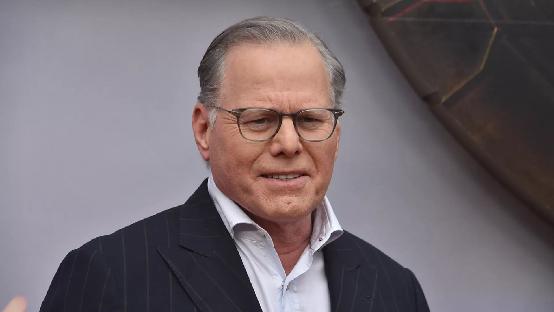
Media group Warner Bros. Exploration announced on Monday that it will split into two publicly traded companies next year, separating its television network business from streaming services. The move to divest a company focused on streaming and another focused on traditional television comes at a time when the company is struggling to cope with an overall business downturn.
WBD announced on Monday that it would split into two companies, a concept first reported by CNBC in April. One of the companies, temporarily named Streaming and Studios, will include Warner Bros. Television, Warner Bros. Pictures, DC Studios, HBO, and HBOMax. The other company, currently known as GlobalNetworks, will include the company's other assets: traditional cable television networks, TNT Sports, digital products, and European free to air television channels.
Warner Bros. Discovery was founded three years ago when AT&T spun off Warner Media and merged it with Discovery Channel for $43 billion to form Warner Bros. Discovery. After the merger, the new company was burdened with approximately $55 billion in debt, and long-term liabilities have put significant pressure on cash flow. And due to the intense competition in streaming media, users have turned to streaming media on a large scale, resulting in a sharp decline in traditional cable TV network revenue. Under the advertising value, the company's annual revenue in 2024 decreased by 5% year-on-year, and the net loss in the fourth quarter expanded to 494 million US dollars. The shrinking revenue of traditional cable TV advertising and the high cost of streaming media investment have created a great contradiction. At the same time, the operating logic of streaming media business is completely different from that of traditional TV networks, which has led to very low management efficiency today. Various reasons are forcing Warner Bros. to explore a spin off plan to cope with structural pressure.
This split can also be seen as a correction to the failed integration after the 2022 merger, aimed at addressing the "comprehensive disruption" of the media landscape through business separation. After the announcement of the split, Warner Bros. Exploration's stock price surged by over 10% in a single day before trading, reflecting investors' recognition of the strategic adjustment.
However, Warner Bros. 'plan to split the company is not without challenges. How to maintain the operational efficiency and competitiveness of the two companies after the split will be a major test. The streaming media market is fiercely competitive, Netflix、 Disney and other giants have already occupied a considerable market share, and Warner Bros. 'exploration of new streaming companies needs to make more efforts in content innovation and user experience to attract and retain users, but also to bear the pressure of high cost production.
Meanwhile, traditional media companies are also facing pressure to transform. In the context of declining advertising revenue and user churn, exploring new profit models will be an urgent problem to be solved. Warner Bros. 'exploration of traditional media companies can consider seeking external partnerships such as event licensing or the Versant merger with Comcast to optimize value after divesting from some declining businesses. It can also explore digital transformation such as digital subscription models to expand new sources of revenue and cope with financial risks.
In addition, how to reasonably distribute the $55 billion debt after the split will also have a significant impact on Warner Bros. 'exploration of the company's future development. If liabilities are too concentrated in traditional business companies, it may exacerbate their financial risks. Therefore, the company needs to fully consider the issue of debt distribution in the split plan to ensure that both companies can develop steadily.
This split further validates the rationality of the "separation of traditional television and streaming media" and has become a standard transformation path for media giants. Companies such as Comcast have adopted similar strategies, which have promoted the industry's transition from a hybrid model to a specialized division of labor model.

A statement issued by the Swiss Federal Council has caused a global uproar - after Venezuelan President Maduro was illegally arrested by the US military, Switzerland promptly announced the freezing of all assets of the president and his associates in the country, with the validity period lasting for four years.
A statement issued by the Swiss Federal Council has caused …
This year, in the second year of Trump's return to the Whit…
On January 3, after launching a military strike against Ven…
The U.S. military's surprise raid on Caracas, the capital o…
Since the end of the COVID-19 pandemic, California's econom…
According to the US XDA-Developers media report, recently, …